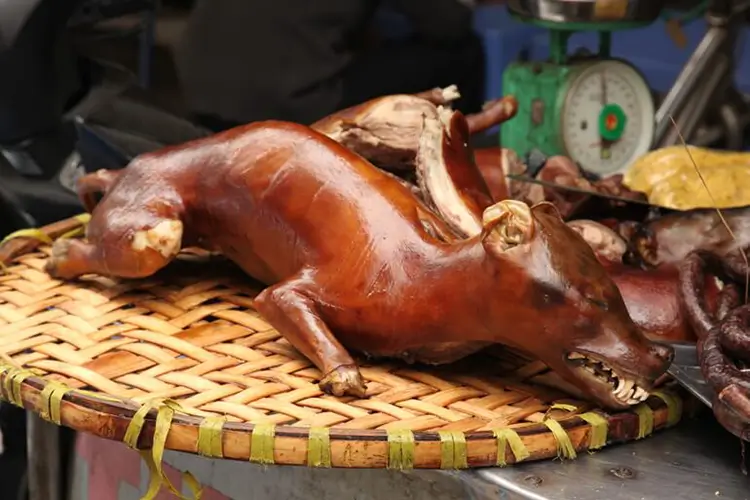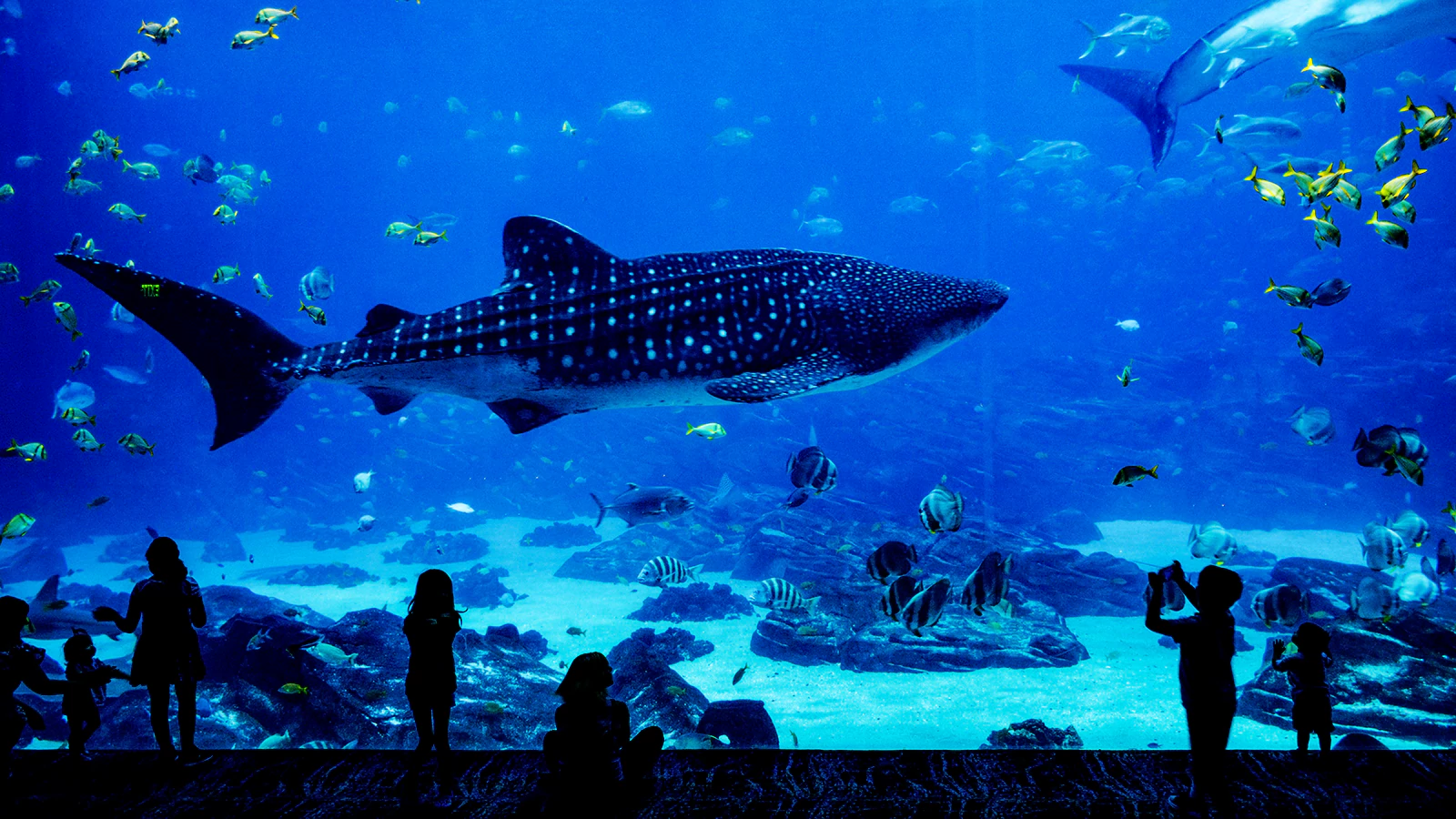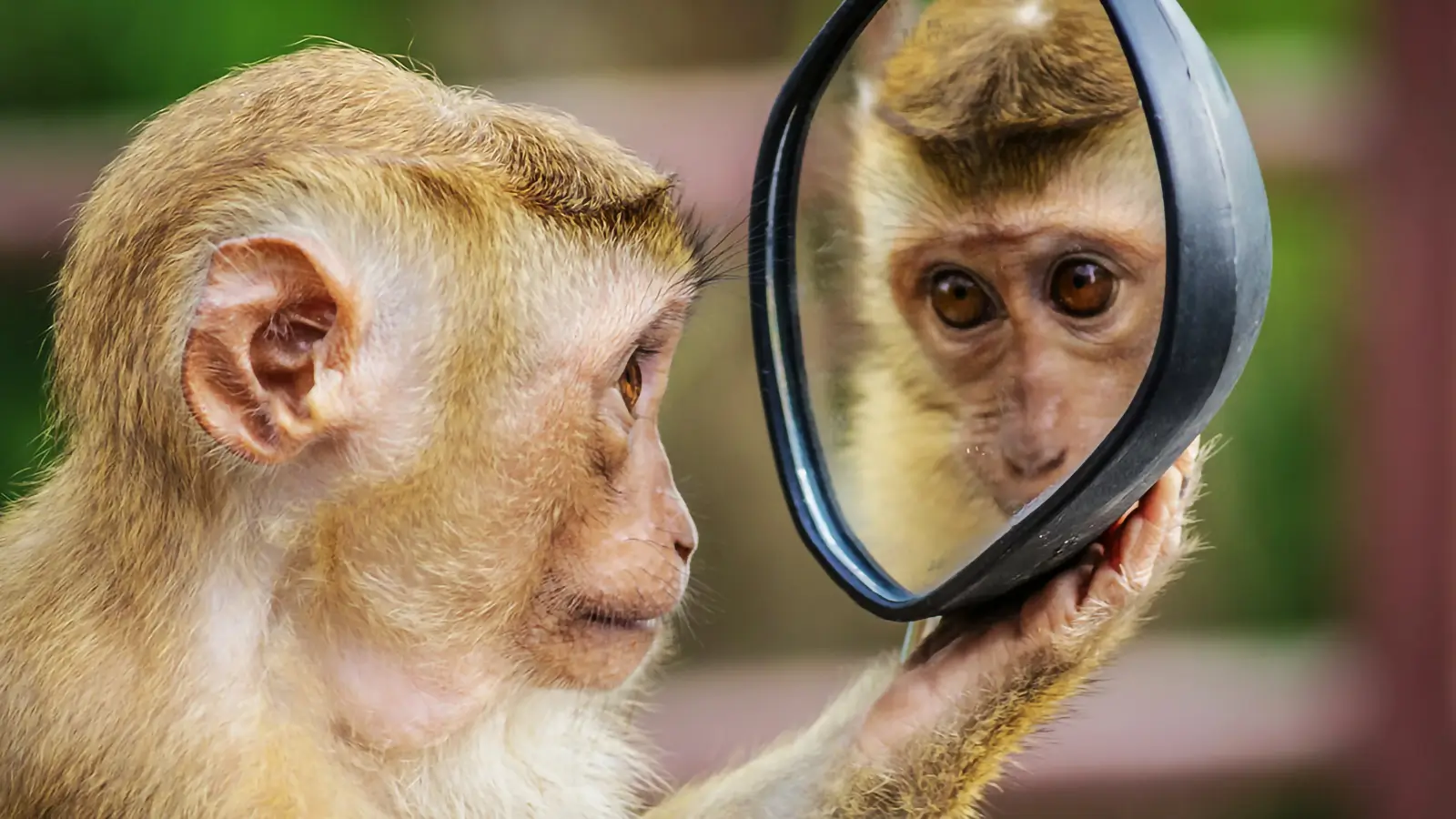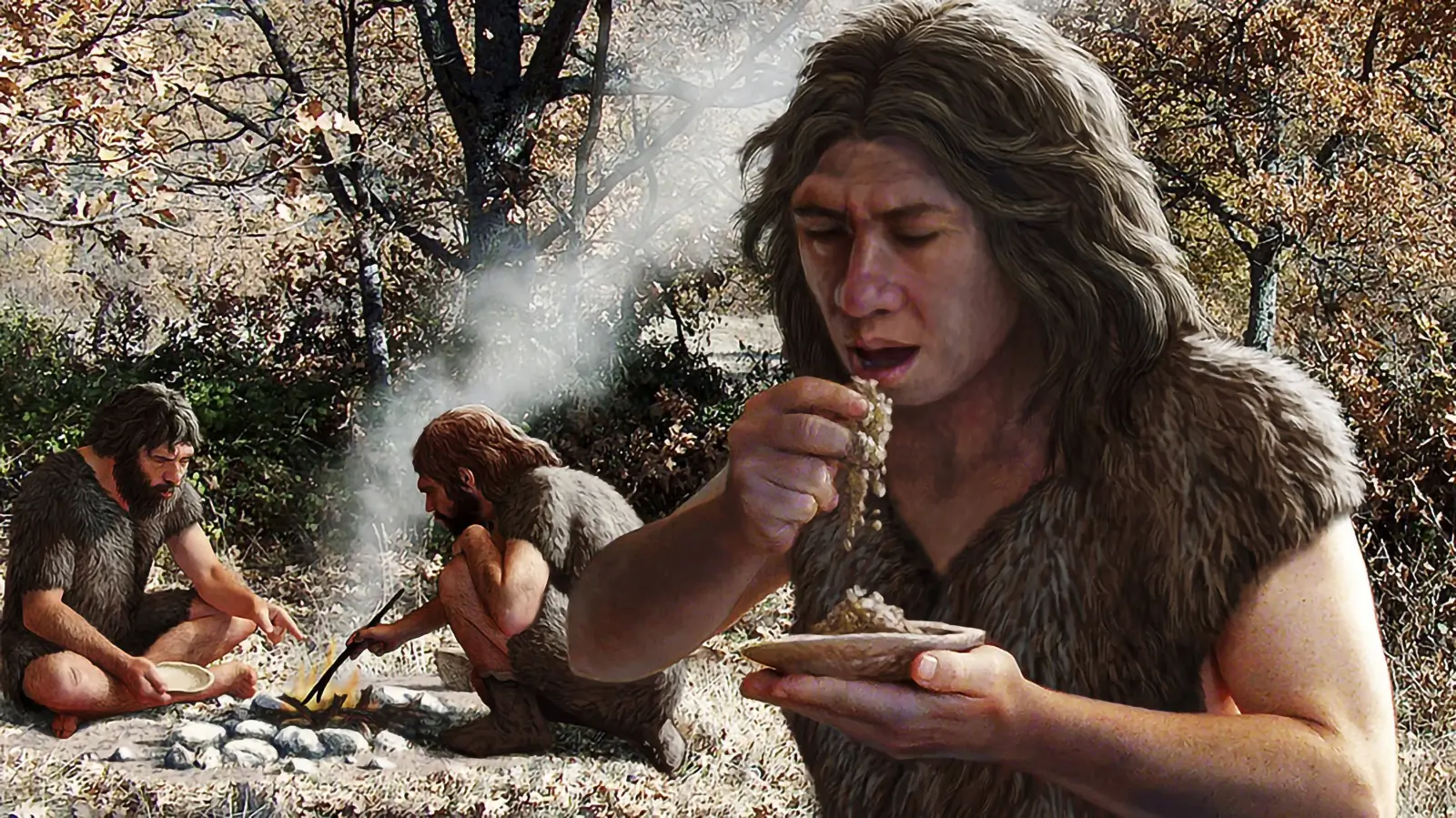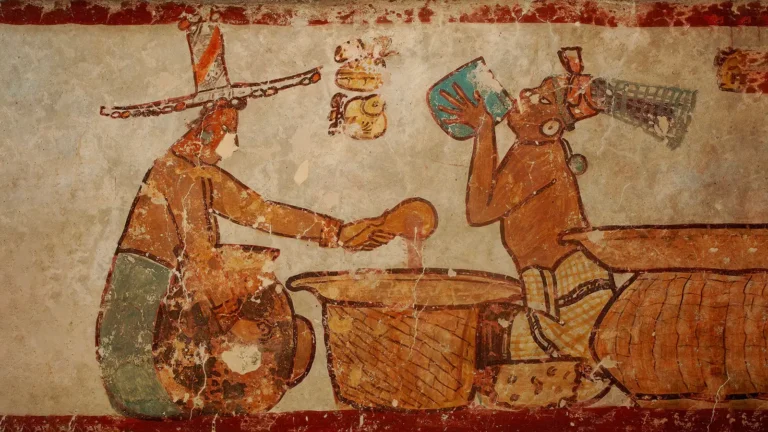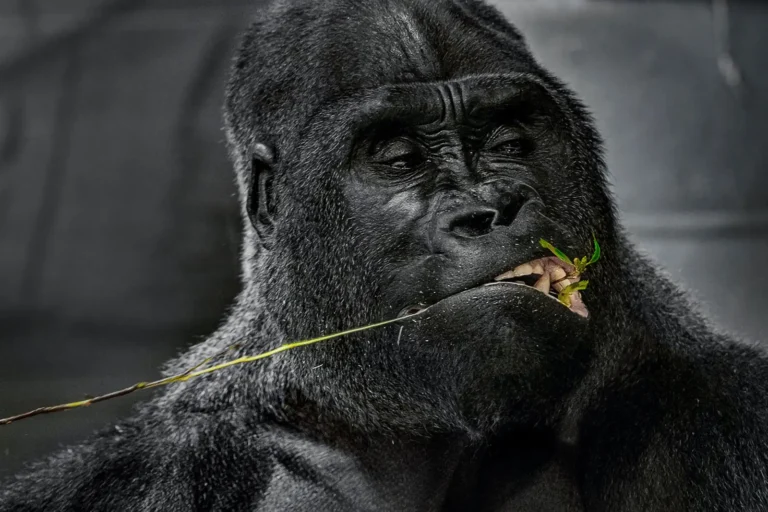Carnismo - A psicologia do consumo de carne
Comer carne ou Carnismo é a cultura que se aprende. Os carnívoros comem qualquer carne, seja ela qual for. Comeríamos apenas alguns animais que consideramos como alimento.
Milos Pokimica
Escrito por: Milos Pokimica
Revisto Clinicamente Por: Dr. Xiùying Wáng, M.D.
Actualizado em 7 de Maio de 2023Carnismo é uma palavra que Melanie Joy, Ph.D. usou para definir o sistema de valores e normas que definem a cultura dominante de consumo de carne. Comer carne ou Carnismo é a cultura que se aprende.
Os carnívoros reais comeriam qualquer carne, seja ela qual for. No nosso sistema, comeríamos apenas alguns poucos animais que consideramos como alimento. Por exemplo, comeria o seu cão? A inteligência média do porco está ao nível de uma criança de 3 anos, e o porco é mais inteligente do que um cão. Um porco é um animal muito inteligente. Pensamos que a carne de cão não tem um bom gosto? Na China, por exemplo, eles comem mesmo cães.
Então porque é que não os comemos? Porque é que não comemos carne humana? Será que pensamos que a carne humana não tem bom gosto? Nas palavras de Alexander Pearce, um condenado irlandês famoso por canibalizar os seus companheiros de fuga da prisão:
"A carne do homem é deliciosa, sabe muito melhor do que o peixe ou a carne de porco."
Em alternativa, que tal:
"Era como uma boa vitela, totalmente desenvolvida, não jovem, mas ainda não era carne de vaca. Era definitivamente assim, e não era como qualquer outra carne que eu já tivesse provado... Era uma carne suave e boa, sem qualquer outro sabor nitidamente definido ou altamente caraterístico, como, por exemplo, a cabra, a caça grossa e a carne de porco."
- William Seabrook, um explorador que comeu um bife de alcatra humana numa viagem à África Ocidental.
Mais recentemente, o apresentador de ciência Greg Foot estava a tentar descobrir o segredo do sabor da carne humana numa experiência com o BritLab para a BBC. Infelizmente, é ilegal comer a nossa própria carne. Tendo em conta que é ilegal, o objetivo final era experimentar alguma semelhança com o sabor. Fizeram uma biopsia ao músculo da perna do Greg e contentaram-se com o aroma da sua carne cozinhada. O aroma da carne pode representar até 80 por cento da nossa sensação de sabor. Colocaram a carne humana cozinhada numa máquina de análise de aromas e fizeram o teste do cheiro. Nas palavras de Greg, o músculo da sua perna cheirava a guisado de carne. A análise do músculo da perna mostrou que a sua composição é muito semelhante à do frango e à da carne de vaca. É cerca de metade do músculo que encontramos no peito de frango e tem fibras musculares semelhantes às que encontramos em cortes de carne de vaca. No final, criaram uma mistura de carne moída de diferentes animais para recriar as fibras que encontraram na biopsia da perna e fizeram um falso hambúrguer humano.
O canibalismo está exaustivamente documentado em todo o mundo, desde a Bacia Amazónica até ao Congo, Fiji, e ao povo Maori da Nova Zelândia. Não é uma invenção moderna, e em algumas culturas, é normal. Há também o canibalismo ritual cerimonial. No mundo moderno, ainda era praticado na Papua Nova Guiné a partir de 2018 em rituais cerimoniais e cerimónias de guerra em várias tribos melanésias. Acredita-se que os neandertais tenham praticado canibalismo. Os humanos anatomicamente modernos podem também ter comido os Neandertais.
Nas explorações mais pequenas, o abate é sempre feito com as mãos nuas e sem anestesia. O mesmo acontece com qualquer outro animal. Os pintos machos não põem ovos e não crescem suficientemente depressa, pelo que, após a eclosão, são selecionados e colocados numa máquina de moer ainda vivos. As fêmeas são enviadas para uma lâmina quente para remover parte dos bicos dos pintainhos. Depois de descascadas, as aves são colocadas em gaiolas onde vão passar o resto das suas vidas confinadas em espaços minúsculos. Devido à reprodução selectiva, cresceram tão rapidamente que muitos sofrem de problemas nas pernas e dores crónicas nas articulações. No abate, as aves de capoeira são colocadas de cabeça para baixo em grilhões móveis pelas pernas e depois puxadas através de uma lâmina que lhes corta a garganta.
A verdade é que realmente não nos importamos ou nunca nos importaríamos. Os seres humanos têm empatia selectiva. Podemos sentir-nos mal pelos cães, mas não pelos porcos.
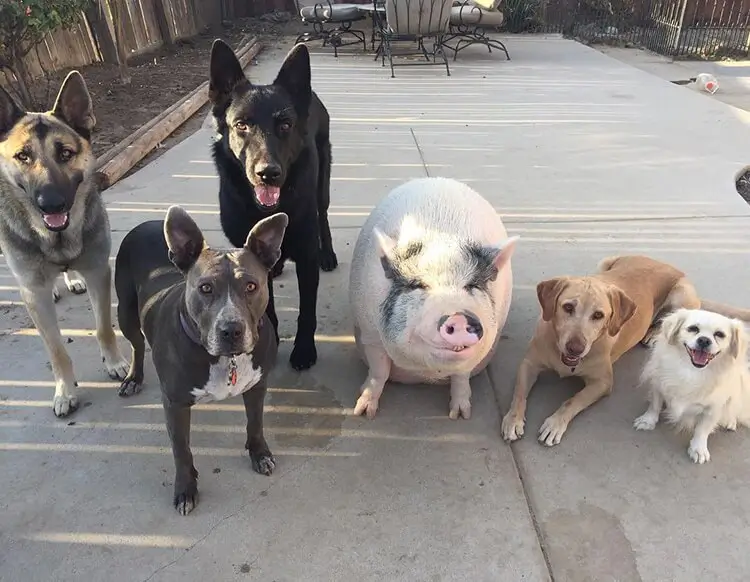
A Dra. Melanie Joy chama-lhe uma lacuna na nossa consciência, o bloqueio da consciência. Uma forma de mecanismo de negação ou de autodefesa.
Ela fala de três extremidades da justificação. Comer carne é saudável, normal, e necessário.
No entanto, o que pensamos ser normal é apenas a estrutura social da cultura dominante. Durante a maior parte do tempo de toda a existência humana, a escravatura foi normal, natural, e necessária. Mesmo na Europa da Idade Média cristã com a inquisição, a escravatura era normal e natural. O tráfico de escravos era mesmo necessário para a economia dos territórios recém-adquiridos do novo mundo. Há apenas "selvagens" que correm nus. Bem, durante a maior parte da história humana, correr nu era correr naturalmente. Isto é o que se chama consciência selectiva.
O vestuário é também uma invenção moderna. O que é natural também representa a interpretação cultural dominante da história. Assassinato, violação, infanticídio, aborto e sacrifício de crianças foram totalmente naturais durante a maior parte da história humana.
Os padrões de comportamento são normalmente os mesmos e não mudam. Apenas a consciência selectiva muda para justificar o comportamento.
No final, no caso de ter alguma ideia de salvar alguns leitões, hoje em dia não se trata apenas de arrombamento e roubo. Em 2008 o FBI escreveu: "Juntos, os ecoterroristas e os extremistas dos direitos dos animais são uma das mais graves ameaças de terrorismo doméstico nos Estados Unidos actualmente". Os EUA estão tão preocupados com o extremismo dos direitos dos animais que existe legislação específica para eles: A Lei do Terrorismo Empresarial Animal (AETA). Nenhum outro acto terrorista visa uma ideologia específica.
Muitas pessoas na comunidade vegana acreditam que o tratamento de animais é uma questão de justiça social. É exactamente isso que, por exemplo, a Dra. Melanie Joy ensina nas suas palestras. O problema é que a justiça depende da nossa percepção das normas. Quanto mais aprendermos, mais compreenderemos a natureza da existência humana. E não há nada de mal nisso. O existencialismo é a força que impulsiona todos os animais e a evolução. Auto-preservação, interesse próprio não importa o quê.
O que algumas pessoas das comunidades veganas não compreendem é que a consciência selectiva não é apenas um mecanismo de defesa. É um instinto evolutivo instintivo de autopreservação.
A única razão, por exemplo, porque não comemos cães não é porque de alguma forma aprendemos culturalmente a não o fazer, mas porque os utilizámos mais vivos. É de novo o interesse próprio. Utilizámos cães para caçar para apanhar outros animais, e usámo-los como alguma forma de sistema de alarme primitivo. Eles ladrarão quando um urso ou lobo ou outro humano ou Neandertal atravessar o nosso território, porque os lobos são animais territoriais e cão, faz agora parte da matilha humana.
A tendência que temos para não comer gatos não é que a tenhamos aprendido culturalmente. É porque eles são uma forma de controlo de pragas primitivas. Os gatos tendem a comer ratos, por isso tivemos mais benefícios de os domesticar em vez de os comer. Com o tempo, o comportamento funde-se com a nossa cultura e integra-se nas normas sociais. A mesma razão pela qual não gostamos de porcos é que eles não ladram, não apanham ratos, e não fazem nada. Não temos benefícios com eles, eles são "estúpidos", e nós vamos comê-los. Se tentarmos ordenhá-los, isso não será bom também porque eles são relativamente pequenos. O gado bovino, pelo contrário, é maior, pelo que não há leite de porco para nós.
A única razão pela qual temos mesmo civilização é que os hominídeos primitivos como o Homo erectus tiveram mais benefícios em cooperar do que em viver como lobos solitários por si próprios. Os hominídeos também tinham comunidades porque beneficiavam o indivíduo. Mesmo um macho beta tolerará o macho alfa não porque se sente bem em ser vencido, mas porque é mais benéfico para ele ser beta do que ser lobo solitário e morrer. Tudo o que já foi conduzido por qualquer animal, incluindo os humanos, resume-se ao instinto de preservação e ao existencialismo. E depois tornou-se parte das normas culturais.
Referências:
Passagens seleccionadas de um livro: Pokimica, Milos. Go Vegan? Revisão da Ciência-Parte 1. Kindle ed., Amazon, 2018.
Você tem alguma dúvida sobre saúde e nutrição?
Eu adoraria ouvir de você e respondê-las em meu próximo post. Agradeço sua contribuição e opinião e espero ouvir de você em breve. Eu também convido você a siga-nos no Facebook, Instagram e Pinterest para mais conteúdos sobre dieta, nutrição e saúde. Pode deixar um comentário e ligar-se a outros entusiastas da saúde, partilhar as suas dicas e experiências e obter apoio e encorajamento da nossa equipa e comunidade.
Espero que este post tenha sido informativo e agradável para si e que esteja preparado para aplicar os conhecimentos que aprendeu. Se achou este post útil, por favor partilhá-lo com os seus amigos e familiares que também possam beneficiar com isso. Nunca se sabe quem poderá precisar de alguma orientação e apoio no seu percurso de saúde.
– Você Também Pode Gostar –

Aprender Sobre Nutrição
Milos Pokimica é médico de medicina natural, nutricionista clínico, escritor de saúde e nutrição médica, e conselheiro em ciências nutricionais. Autor da série de livros Go Vegan? Revisão de Ciênciaopera também o website de saúde natural GoVeganWay.com
Medical Disclaimer
GoVeganWay.com traz análises das pesquisas mais recentes sobre nutrição e saúde. As informações fornecidas representam a opinião pessoal do autor e não pretendem nem implicam substituir aconselhamento, diagnóstico ou tratamento médico profissional. As informações fornecidas são apenas para fins informativos e não se destinam a servir como substituto para consulta, diagnóstico e/ou tratamento médico de um médico ou profissional de saúde qualificado.NUNCA DESCONSIDERE o CONSELHO MÉDICO PROFISSIONAL OU adiar a BUSCA de TRATAMENTO MÉDICO por causa DE ALGO QUE TENHA LIDO OU ACESSADO por MEIO de GoVeganWay.com
NUNCA APLIQUE QUAISQUER MUDANÇAS de estilo de VIDA OU QUALQUER MUDANÇA COMO UMA CONSEQUÊNCIA DE ALGO QUE TENHA LIDO NO GoVeganWay.com ANTES de CONSULTORIA de LICENÇA MÉDICA.
No caso de uma emergência médica, ligue para o médico ou para o 911 imediatamente. GoVeganWay.com não recomenda ou endossa qualquer específicos, grupos, organizações, exames, médicos, produtos, procedimentos, opiniões ou outras informações que podem ser mencionadas dentro.
Sugestões do Editor –
Milos Pokimica é escritor especializado em saúde e nutrição e consultor em ciências nutricionais. Autor da série de livros Go Vegan? Revisão de Ciênciaopera também o website de saúde natural GoVeganWay.com
Artigos Mais Recentes -
Superior De Saúde De Notícias — ScienceDaily
- The overlooked nutrition risk of Ozempic and Wegovyon Fevereiro 4, 2026
Popular weight-loss drugs like Ozempic and Wegovy can dramatically curb appetite, but experts warn many users are flying blind when it comes to nutrition. New research suggests people taking these medications may not be getting enough guidance on protein, vitamins, and overall diet quality, increasing the risk of muscle loss and nutrient deficiencies.
- A 25-year study found an unexpected link between cheese and dementiaon Fevereiro 4, 2026
A massive Swedish study tracking nearly 28,000 people for 25 years found an unexpected link between full-fat dairy and brain health. Among adults without a genetic risk for Alzheimer’s, eating more full-fat cheese was associated with a noticeably lower risk of developing the disease, while higher cream intake was tied to reduced dementia risk overall. The findings challenge decades of low-fat dietary advice but come with important caveats.
- MIT’s new brain tool could finally explain consciousnesson Fevereiro 4, 2026
Scientists still don’t know how the brain turns physical activity into thoughts, feelings, and awareness—but a powerful new tool may help crack the mystery. Researchers at MIT are exploring transcranial focused ultrasound, a noninvasive technology that can precisely stimulate deep regions of the brain that were previously off-limits. In a new “roadmap” paper, they explain how this method could finally let scientists test cause-and-effect in consciousness research, not just observe […]
- Why heart disease risk in type 2 diabetes looks different for men and womenon Fevereiro 4, 2026
Scientists are digging into why heart disease risk in type 2 diabetes differs between men and women—and sex hormones may be part of the story. In a large Johns Hopkins study, men with higher testosterone had lower heart disease risk, while rising estradiol levels were linked to higher risk. These hormone effects were not seen in women. The results point toward more personalized approaches to heart disease prevention in diabetes.
- Sound machines might be making your sleep worseon Fevereiro 4, 2026
Sound machines may not be the sleep saviors many believe. Researchers found that pink noise significantly reduced REM sleep, while simple earplugs did a better job protecting deep, restorative sleep from traffic noise. When pink noise was combined with outside noise, sleep quality dropped even further. The results suggest that popular “sleep sounds” could be doing more harm than good—particularly for kids.
- This unexpected plant discovery could change how drugs are madeon Fevereiro 3, 2026
Plants make chemical weapons to protect themselves, and many of these compounds have become vital to human medicine. Researchers found that one powerful plant chemical is produced using a gene that looks surprisingly bacterial. This suggests plants reuse microbial tools to invent new chemistry. The insight could help scientists discover new drugs and produce them more sustainably.
- A hidden cellular process may drive aging and diseaseon Fevereiro 3, 2026
As we age, our cells don’t just wear down—they reorganize. Researchers found that cells actively remodel a key structure called the endoplasmic reticulum, reducing protein-producing regions while preserving fat-related ones. This process, driven by ER-phagy, is tied to lifespan and healthy aging. Because these changes happen early, they could help trigger later disease—or offer a chance to stop it.
PubMed, #vegan-dieta –
- Diet type and the oral microbiomeon Fevereiro 2, 2026
CONCLUSION: The diet-oral microbiome-systemic inflammation axis is bidirectional and clinically relevant. Understanding both direct ecological regulation and indirect metabolic effects is essential to support precision nutrition strategies aimed at maintaining oral microbial balance and systemic inflammatory risk mitigation.
- Consensus document on healthy lifestyleson Janeiro 22, 2026
Proteins are a group of macronutrients that are vital to our lives, as they perform various functions, including structural, defensive and catalytic. An intake of 1.0-1.2 g/kg/body weight per day would be sufficient to meet our needs. Carbohydrate requirements constitute 50 % of the total caloric value and should be obtained mainly in the form of complex carbohydrates. In addition, a daily intake of both soluble and insoluble fiber is necessary. Regular consumption of extra virgin olive oil […]
- Vitamin B12 and D status in long-term vegetarians: Impact of diet duration and subtypes in Beijing, Chinaon Janeiro 21, 2026
CONCLUSIONS: This study reveals a dual challenge among Beijing long-term vegetarians: vitamin B12 deficiency was strongly associated with the degree of exclusion of animal products from the diet (veganism), while vitamin D deficiency was highly prevalent and worsened with longer diet duration. The near-universal vitamin D deficiency observed in this study suggests that, in the Beijing context, the risk may extend beyond dietary choice, potentially reflecting regional environmental factors;…
- Nutritional evaluation of duty meals provided to riot police forces in Germanyon Janeiro 13, 2026
Background: The primary role of the German riot police is maintaining internal security. Due to challenging working conditions, riot police forces face an elevated risk of various diseases. During duty, forces are provided with meals. A balanced diet can reduce the risk of some of these diseases and contribute to health-promoting working conditions. Aim: First evaluation of the nutritional quality of duty meals in Germany based on German Nutrition Society recommendations (DGE). Methods: In…
- Iodineon Janeiro 1, 2006
Iodine is an essential trace nutrient for all infants that is a normal component of breastmilk. Infant requirements are estimated to be 15 mcg/kg daily in full-term infants and 30 mcg/kg daily in preterm infants.[1] Breastmilk iodine concentration correlates well with maternal urinary iodine concentration and may be a useful index of iodine sufficiency in infants under 2 years of age, but there is no clear agreement on a value that indicates iodine sufficiency, and may not correlate with […]
Postagens aleatórias –
Postagens em destaque –
Últimas do PubMed, #dieta baseada em vegetais –
- From paddy soil to dining table: biological biofortification of rice with zincpor Lei Huang on Fevereiro 4, 2026
One-third of paddy soils are globally deficient in zinc (Zn) and 40% of Zn loss in the procession from brown rice to polished rice, which results in the global issue of hidden hunger, e.g., the micronutrient deficiencies in the rice-based population of developing countries. In the recent decades, biofortification of cereal food crops with Zn has emerged as a promising solution. Herein, we comprehensively reviewed the entire process of Zn in paddy soil to human diet, including the regulatory…
- Molecular Characterization of Tobacco Necrosis Virus A Variants Identified in Sugarbeet Rootspor Alyssa Flobinus on Fevereiro 3, 2026
Sugarbeet provides an important source of sucrose; a stable, environmentally safe, and low-cost staple in the human diet. Viral diseases arising in sugarbeet ultimately impact sugar content, which translates to financial losses for growers. To manage diseases and prevent such losses from occurring, it is essential to characterize viruses responsible for disease. Recently, our laboratory identified a tobacco necrosis virus A variant named Beta vulgaris alphanecrovirus 1 (BvANV-1) in sugarbeet…
- Nutrition in early life interacts with genetic risk to influence preadult behaviour in the Raine Studypor Lars Meinertz Byg on Fevereiro 3, 2026
CONCLUSIONS: Nutrition in early life and psychiatric genetic risk may interact to determine lasting child behaviour. Contrary to our hypothesis, we find dietary benefits in individuals with lower ADHD PGS, necessitating replication. We also highlight the possibility of including genetics in early nutrition intervention trials for causal inference.
- Effect of the gut microbiota on insect reproduction: mechanisms and biotechnological prospectspor Dilawar Abbas on Fevereiro 2, 2026
The insect gut microbiota functions as a multifunctional symbiotic system that plays a central role in host reproduction. Through the production of bioactive metabolites, gut microbes interact with host hormonal pathways, immune signaling, and molecular regulatory networks, thereby shaping reproductive physiology and fitness. This review summarizes recent advances in understanding how gut microbiota regulate insect reproduction. Accumulating evidence demonstrates that microbial metabolites…
- Rationale and design of a parallel randomised trial of a plant-based intensive lifestyle intervention for diabetes remission: The REmission of diabetes using a PlAnt-based weight loss InteRvention…por Brighid McKay on Fevereiro 2, 2026
CONCLUSIONS: This trial will provide high-quality clinical evidence on the use of plant-based ILIs to address the epidemics of obesity and diabetes to inform public health policies and programs in Canada and beyond.
- Diet type and the oral microbiomepor Daniel Betancur on Fevereiro 2, 2026
CONCLUSION: The diet-oral microbiome-systemic inflammation axis is bidirectional and clinically relevant. Understanding both direct ecological regulation and indirect metabolic effects is essential to support precision nutrition strategies aimed at maintaining oral microbial balance and systemic inflammatory risk mitigation.
